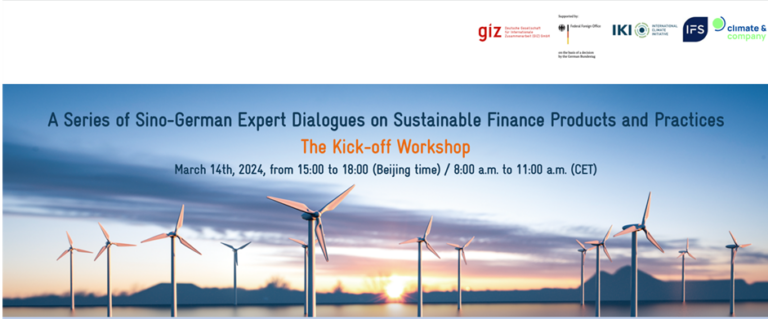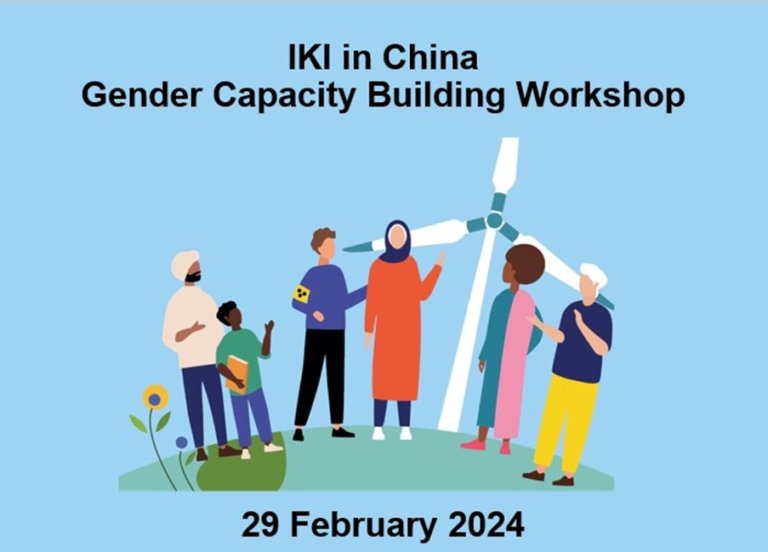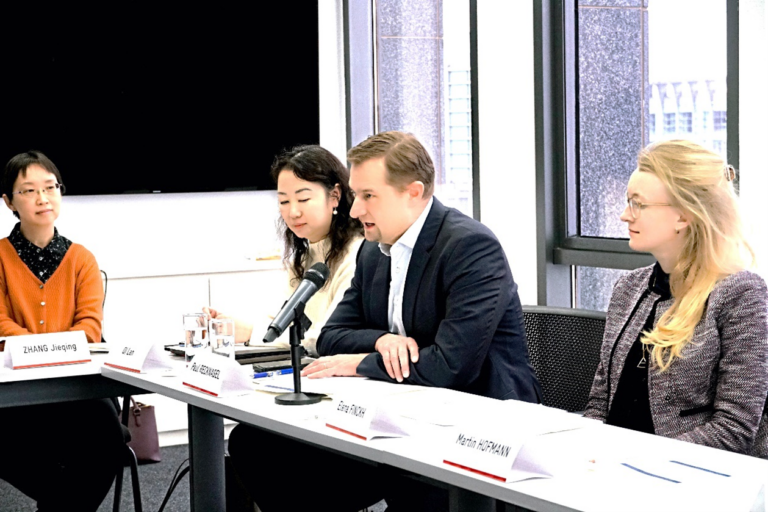On 30 September, the Chinese and German experts of the four working groups of the Sino-German Track-2-Dialogue (T2D) came together virtually to present the results of their collaboration at the third Steering Committee Meeting of the Sino-German Track-2-Dialogue. In the presence of the T2D co-chairs—the president of the UBA, Mr Dirk MESSNER, as well as Mr XU Huaqing, the Director General of NCSC—the contributions on emission trading, green economic growth, emissions data collection and long-term emission reduction strategies were discussed. The co-chairs acknowledged the accomplishments of the cooperation.
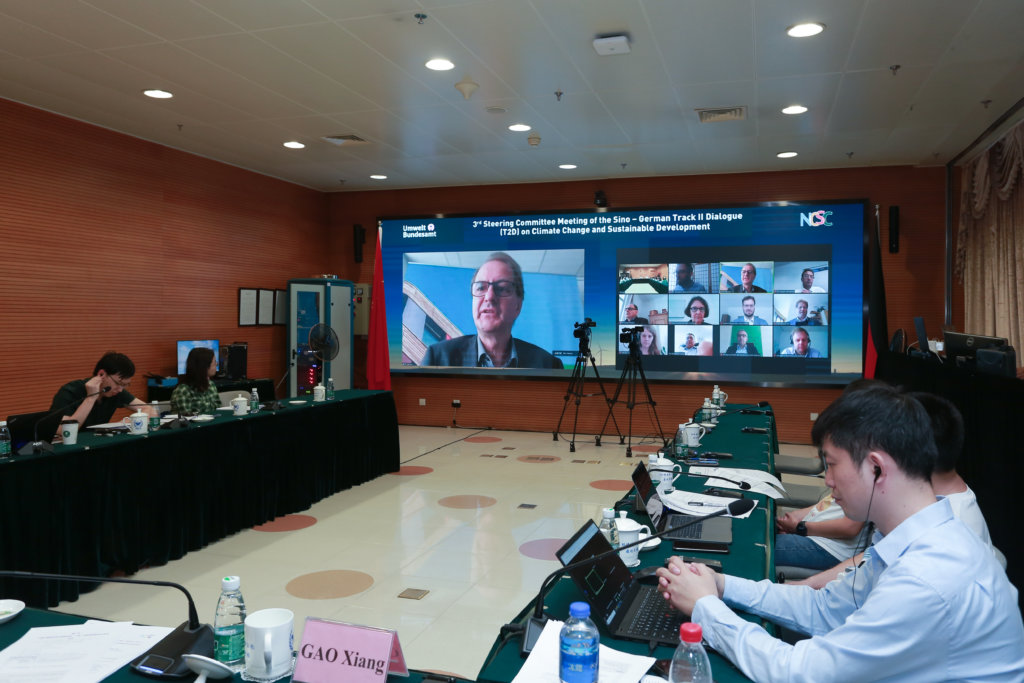
Experts from the four groups of the Sino-German Track-2-Dialogue—which is organised by the National Center for Climate Change Strategy and International Cooperation (NCSC) and the German Federal Environment Agency (UBA) and supported by GIZ—had already met throughout July and September to discuss policy recommendations to be made in the focus areas of the four working groups. Additionally, the meetings served to define core topics for each working group topic and to prepare joint outputs that were then presented at the Steering Committee Meeting.
Working Group 1, which focuses on the topics of Green Recovery and Green Transformation, developed an output paper that provides an overview on the background and challenges of low energy transformation and makes recommendations for addressing those challenges.
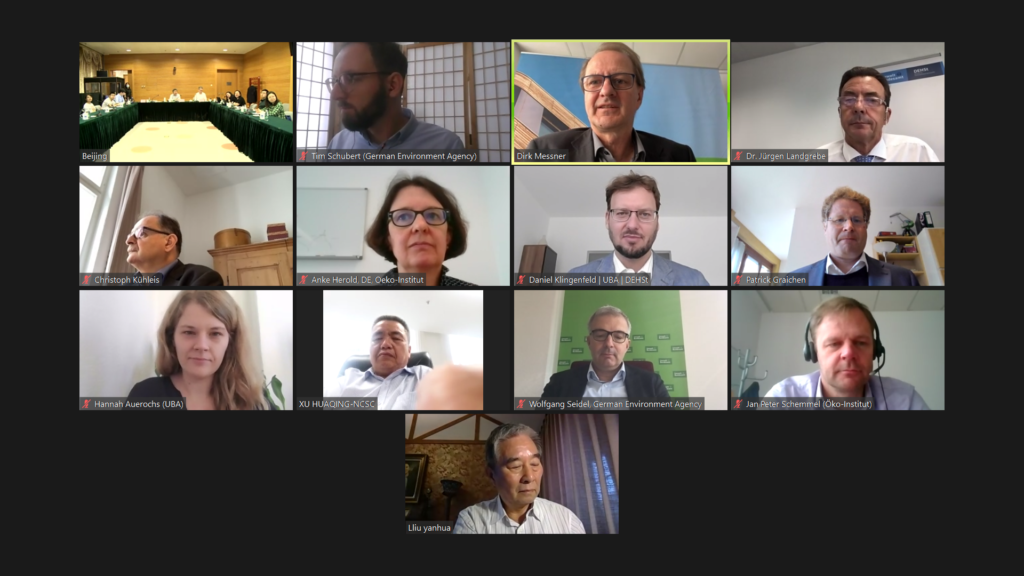
Working Group 2, whose work is focused on market-based mechanisms as an incentive to reduce greenhouse gas emissions, developed an output paper outlining key aspects of the German and Chinese ETS and recommending the further development of market-based mechanisms to abate domestic GHG emissions to policymakers. Furthermore, the paper discusses options for closer bilateral cooperation between the ETS systems and serves to highlight perspectives for future cooperation between the German and Chinese cooperation partners.
Working Group 3, which examines long-term low GHG emission and carbon neutrality strategies and scenarios, defined a long-term low carbon strategy in their output paper, within the scope of which national targets were decomposed into sectoral targets. Furthermore, Germany’s policies relating to the coal phase-out were outlined.
Working Group 4, whose members took stock of the IPCC reporting mechanism to provide a better understanding of how to underpin climate action with emission data, drafted an output paper on the usage of IPCC common reporting tables for emission reporting, focusing, among other things, on best practice examples from the German and EU ETS and applicable flexibility options in the common reporting tables.
The Sino-German T2D dialogue was launched in December 2020 and complements the high-level political dialogue with science-based exchanges. The Sino-German T2D provides the opportunity to exchange and learn from each other and reach consensus at a technical level. The core teams leading the T2D include the National Center for Climate Change Strategy and International Cooperation (NCSC) on the Chinese side, and the German Environment Agency (UBA) on the German side.
